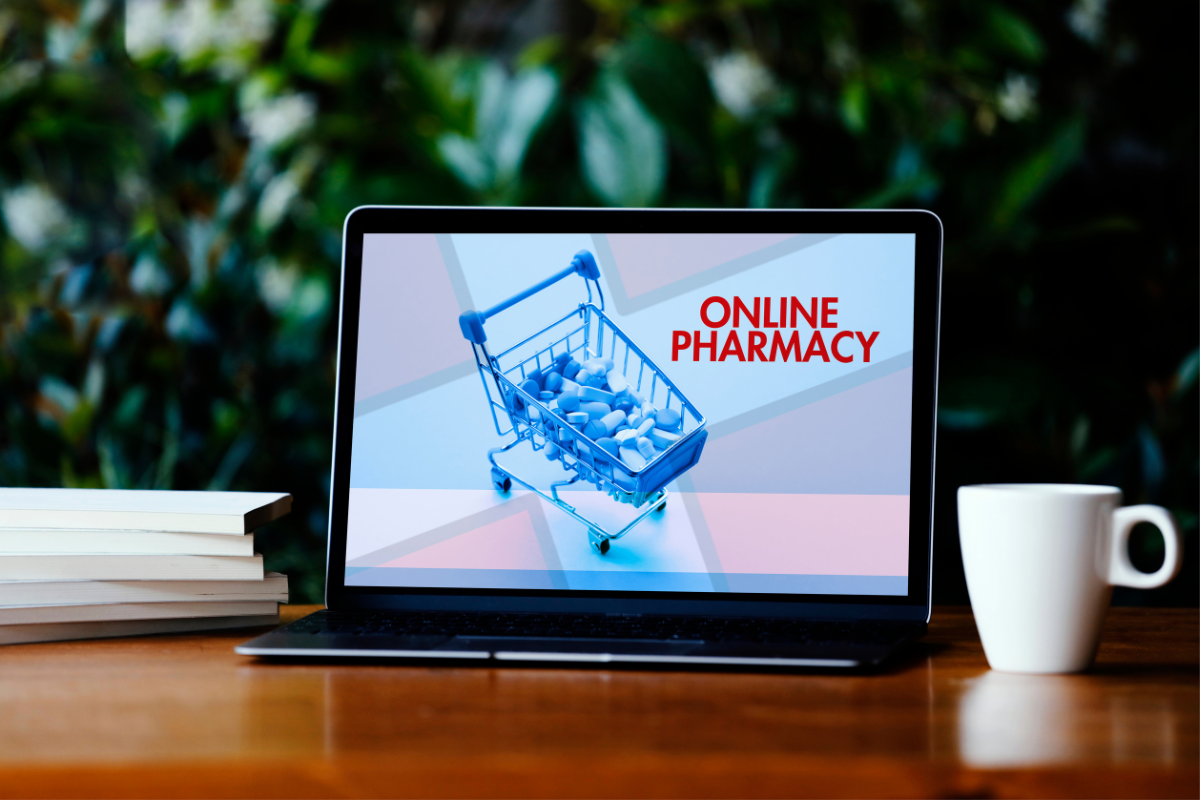Date

Buying medicines, remedies and similar products online is very popular. Whether for drugs prescribed by your GP or another healthcare professional, ‘over-the-counter’ remedies or items like slimming aids and skincare products, buying over the internet offers massive convenience and choice.
Launching a new campaign for June in collaboration with North Wales Police and Crime Commissioner Andy Dunbobbin and North Wales Police’s Economic Crime Unit, Tony Neate, CEO at Get Safe Online warned: “Many websites selling such products are perfectly legitimate, but you should always be careful to make sure that this is the case for ones you’re using, and also that what you’re buying is not only suitable for your needs, but safe to use as well.”
Get Safe Online is a leading source of unbiased, factual and easy-to-understand information on online safety in the UK and is a service commissioned by the Office of the Police and Crime Commissioner and North Wales Police to share helpful information and advice with the people of the area.
Tony Neate added: “If you don’t take these precautions, there are many potential risks – from using medicines that are incompatible with those you’re already taking, to fake products that have no active ingredients or, worse still, contain harmful ingredients that could lead to illness or even fatality. This is in addition to visiting websites that could clone your payment card, misuse your personal information or infect your device with malware. Our campaign launching today seeks to provide advice for residents of North Wales, on how to buy medicines safely online.”
DC Rachel Roberts, Financial Abuse Safeguarding Officer in North Wales Police’s Economic Crime Unit commented: “I would urge residents to be cautious about using remedies and medications bought online. Not only do these types of goods have no health benefits, they are also often made in unsanitary conditions and use ingredients that can be harmful to your health.
“Additionally, we often find that once you have made a purchase from an unreputable company, your details will be added to various mailing lists offering all manner of fake health goods. In some cases, victims have also inadvertently signed up to a monthly subscription that is not made clear at the time of purchase.”
Andy Dunbobbin, Police and Crime Commissioner for North Wales said: “It’s said that your health is your wealth and this is true. We all want to stay as healthy as possible and a way to do this is by ensuring that you only buy reputable remedies and goods over the internet. But also, don’t let concern for your health impact your wealth by falling prey to financial scams and economic fraud by unscrupulous criminals online. I’d advise everyone to read the tips on avoiding unsuitable items and that way we can try and stay healthy and wise to these scams.”
Top tips to stay safe
Advice for buying medicines safely online, include:
- Buy prescription drugs only from sites that you can confirm are UK-based and registered by the General Pharmaceutical Council. The pharmacy’s website should also feature the name of the owner of the business; the address of the pharmacy at which the business is conducted; and the name of the Superintendent Pharmacist, where applicable.
- Always consult an appropriate medical professional or registered pharmacist with any questions you have about a medical condition or how to treat it.
- Do not be tempted into self-diagnosis, even if you have searched for a condition and its symptoms online.
- For over-the-counter drugs, other remedies and similar products, it is safest to buy only from UK-based websites with a physical address (which you should check for authenticity). Before doing so, read independent reviews. Search the name and supplier of the product online together with keywords such as ‘fake’, ‘counterfeit’ and ‘dangerous’. You could type the website address into our free, easy-to-use tool at www.getsafeonline.org/checkawebsite
More generally to stay safe when buying online:
- Never reply to, or click on links or attachments contained in, unsolicited or spam emails from companies you don’t recognise.
- Before entering payment card details on a website, ensure that the link is secure: there should be a padlock symbol in the browser window frame, which appears when you attempt to log in or register, and the web address should begin with ‘https://’ (the ‘s’ stands for ‘secure’). This indicates only that the link between you and the website owner is secure, and not that the site itself is legitimate.
- Double check all details of your purchase before confirming payment.
- Remember that paying by credit card offers greater protection than with other methods in terms of fraud, guarantees and non-delivery. Check credit card and bank statements carefully after shopping to ensure that the correct amount has been debited, and also that no fraud has taken place as a result of the transaction.
- Ensure you haveeffective and updated antivirus/antispyware software and firewall running before you go online.
For more free, practical advice on staying safe online this summer, visit: www.getsafeonline.org Or visit the North Wales Police website at: www.northwales.police.uk/advice/advice-and-information/fa/fraud